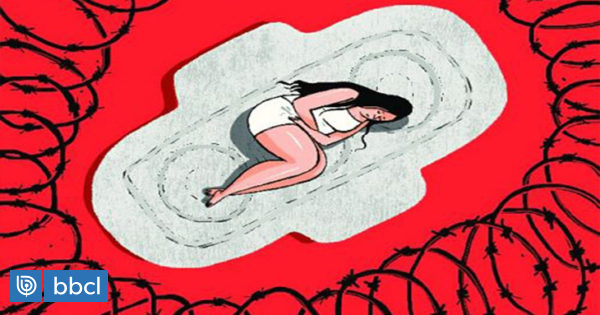
Every day 800 million women, girls and transgender people menstruate. It is currently estimated that 26% of the world’s female population is of childbearing age according to UNICEF, and a menstruating person would menstruate for at least 7 years of their life if they were consecutive days.
A survey conducted by WASH United, World Association of Girl Guides and Girl Scouts (WAGGS) and Unicef revealed that one in four people who menstruate between the ages of 13 and 35 report that it has been more difficult to control their periods since the arrival of COVID-19. Ina Jurga, the international coordinator of the Global Menstrual Hygiene Day, said in the same survey that 47% of these people had difficulty accessing menstrual products during the pandemic.
Unlike men, women go through a biological process once a month: menstruation. Sanitary towels, tampons, menstrual cups, special underwear, the options are varied and yet access is not universal; and in many cases they are not even considered a basic need. A clear example of this were the relief baskets provided by the Chilean government during the quarantine last year. Several feminist and women’s groups joined a campaign conducted through social networks and criticized the government: “We keep menstruating in quarantine”.
Before the pandemic, input for this physiological process could be obtained in various places. Despite the fact that many have closed, the need has not diminished, so organizations around the world have coordinated to help and deliver products, due to the increase in people in need of COVID-19. Many people have lost sources of income, have difficulty accessing basic needs, and are even at risk of becoming homeless; and some of them while they are menstruating.
These people now have to purchase these products themselves, even if they don’t have the resources. According to The State of the Period, a document from Thinx & PERIOD, one in five teens has had trouble paying for period products or simply couldn’t afford themand this before the pandemic, which is fueling the debate about menstrual poverty and the difficult access to these products for parts of the population.
Grace Meng, part of the US Congress representing New York’s 6th district, stated in May 2020 that “menstrual equality is neither a choice nor a luxury. It’s a human right, a right to health. In the current fight against COVD-19, periods do not wait. Today, with more than 40 million Americans out of work as a result of the pandemic, the health and socio-economic challenges of people facing poverty during their periods are increasing. Today it is more important than ever to ensure that everyone who needs these products can get them ”.
Difficult access in Chile

In Chile, more than 15,000 people are estimated to be living on the streets, according to Hogar de Cristo, a foundation that served more than that amount in 2018. The official figure is from nine years ago, 2012, and is consistent with the information collected by the Second Land Registry of Homeless People. This file stated that 12,255 people did not have homes, which is equivalent to 5,001 more individuals than indicated in the first version of the 2005 Land Registry.
Of this official figure, 16% were women: about 2,400. Most of these women are young, the average age is lower than that of street men. Most of these women have explained that they are in this situation, escaping domestic violence, intimate partner violence, or intimate partner violence, among other things, as evidenced by the data provided by Data Voz Statcom in its 2017 Homeless People Report.
In the interviews conducted to conduct this report, it was found that only 35% of women living on the streets have a job and that the income received is 36.5% lower than that of men. 79% of the women surveyed do not have social security.
In Chile, menstruating men represent 51% of the total population. Last year, the Fundación Gente de la Calle launched the #MenstruarEnLaCalle campaign, with the aim of raising awareness of how people who menstruate and live on the street experience their periods. On their website, they explain that “the idea arose from the concerns of Carla Fernandini, Executive Assistant of the Foundation, about the social stigma surrounding this biological process. Also concerns about the injustice associated with the pink tax that leads to situations like menstrual poverty ”.
A person’s annual expenditure on menstrual products in our country is said to be about 48,000 pesos, according to a bill introduced in 2019 by 30 senators, including Isabel Allende, Guido Girardi, Yasna Provoste, Ximena Rincón and Manuel José Ossandón.
In January 2020, Resolution 663 was passed with 133 votes in favor of the Chamber of Deputies. This “calls on the president of the republic to send a bill providing for the free distribution of menstrual hygiene products in educational institutions with contributions from the state, in public health centers, prisons, shelters and people living on the streets,” said the press room. the room.